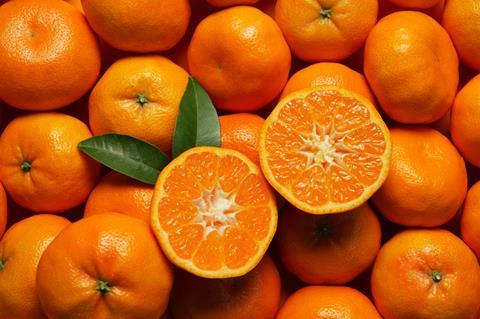Drop is largely due the decline in shipments of oranges, plums and mandarins
Spanish exports of fresh fruits and vegetables to China have fallen sharply in 2025, continuing the decline seen in recent years. Between January and August, shipments fell 63 per cent in both volume and value compared to the year-earlier period, reaching 1,380 tonnes and €2.3mn respectively according to data from Fepex.

Over the last five years, shipments have decreased by 58 per cent and today the Chinese market represents just 0.02 per cent of total Spanish exports.
The fall is largely due to the decline in orange exports, which have shrunk from 8,469 tonnes in 2020 to 3,639 tonnes in 2024, a decrease of 57 per cent.
Plums and mandarins were the second and third best-selling products in China, although these too have declined. Plum shipments have fallen from 279 tonnes in 2020 to 185 tonnes in 2024, a drop of 34 per cent, while mandarin shipments are down from 340 tonnes in 2020 to 22 tonnes in 2024, a drop of 93 per cent.
Persimmon exports, which got underway in 2023 when the phytosanitary protocol was approved, have also seen a decline, from 48 tonnes in 2023 to 16 tonnes in 2024. Table grape shipments, meanwhile, are down to zero, the last volumes exported being 44 tonnes in 2020 and 43 tonnes in 2021.
Fepex said the decline highlights the difficulty Spanish and other EU producers face in accessing and consolidating their position in non-European markets, largely due to protectionist policies. In the case of China, each member state must establish a phytosanitary agreement that often takes years of negotiations and must be done individually for each product.
Furthermore, the agreed protocols set out strict phytosanitary requirements and quarantine conditions that make exporting complex and expensive. Together with the logistical challenge of transporting fruit to such a distant market – exacerbated during the pandemic – this limits the economic viability and competitiveness of Spanish produce in China.
Spain currently has export protocols with China for citrus, stonefruit (peaches, plums, and nectarines), grapes, persimmons, and almonds. A new phytosanitary agreement was agreed for cherries in August, paving the way for exports to begin next season.



